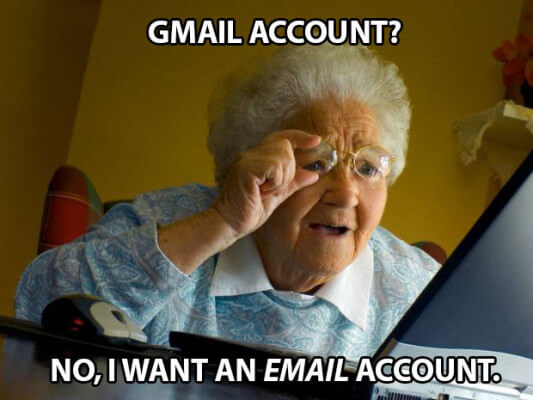The 5 strangest search terms in 2,000+ AdWords accounts
Contributor Jacob Baadsgaard shares cautionary tales of AdWords bidding gone terribly, terribly wrong.
Over the past two years, my team and I have audited more than 2,000 AdWords accounts. While auditing all of those accounts, we saw a lot of search term reports.
Some search terms were good, some were a waste of money and some… were simply strange.
These search terms are a perfect example of how a poor keyword strategy can result in your ads showing up for unpredictable searches… and waste thousands of dollars in the process.
Here are five of the strangest search terms of 2015:
1. “Whack your boss”
Our first search term comes from a campaign targeting women interested in starting their own business.
Unfortunately, the campaign targeted the phrase-match keyword “boss,” which meant that their ads ended up displaying when people typed in “whack your boss.”
What’s astonishing is that this search term had more than 30,000 impressions and 1,719 clicks.
Clearly, a lot of people are frustrated at work.
Unfortunately, since the company didn’t offer anger management services, they didn’t get a single conversion from those 1,719 clicks.
Now, I suppose that wanting to whack your boss might make you want to start your own business, but in this case, “whack your boss” wasn’t attracting the right sort of traffic.
In fact, this search term cost the company more than $3,000 — a truly whack-worthy offense!
Moral of the story: Bidding on phrase-match single keywords is a bad idea.
2. “A$AP rocky”
Our next search term is a classic example of what can happen when you use broad match keywords.
In this particular case, the company implemented system application products (SAPs) for small to medium-size businesses. Since SAP is a fairly widely-used technical term for their services, they decided to bid on the keyword “sap.”
Makes sense, right?
Well, not really. I don’t know about you, but I can think of an awful lot of reasons why people might be searching for the word “sap.”
And, to make matters worse, they decided to use broad match.
As you might expect, this meant they showed up for a variety of irrelevant searches, but one of the strangest was “A$AP rocky.”
As it turned out, Google decided that “sap” might be a misspelling of “asap.” Of course, gold-toothed rapper A$AP Rocky’s name just happens to be a misspelling of “asap,” so Google matched this company’s SAP services ads to searches for “a$ap rocky.”
Fortunately, their ad copy was so obviously wrong for these searches that very few people clicked on their ads, but “a$ap rocky” searches still resulted in nearly 228,000 impressions and 230 clicks.
In fact, “asap”-related terms — including searches for “a$ap fergy”, a less well-known rapper — led to nearly 400,000 impressions and 770 clicks.
Since A$AP doesn’t bid on his own name, most of their ads were showing up in position 1. Unfortunately, having a click-through rate of 0.1 percent in position 1 ruined their quality score for one of their most important keywords.
A low quality score increases your cost-per-click for relevant searches, so bidding on broad-match “sap” directly wasted their ad budget and made clicks from their target audience more expensive!
Moral of the story: Bidding on broad-match keywords is bad — bidding on broad-match acronyms with a variety of potential meanings is worse.
3. “How do I remove the terrible smell from carpet that has been flooded using household ingredients”
This search term actually came from a campaign for a carpet stench remover. And, based on this very long, very specific query, you would think the company had discovered a winner of a search term.
In fact, this query gets typed in surprisingly often; this 16-word search term triggered almost 2,000 impressions and resulted in 127 clicks. The problem is, none of them converted.
That stinks.
For a company that sells an odor-eliminating carpet cleaner, these results seem somewhat counterintuitive. Long-tail keywords usually indicate a very specific search intent that may be more likely to convert.
In this particular case, however, the company was bidding broad match on the keyword “smell out of carpet,” which opened the door for a lot of stinky search terms.
For example, this query clearly indicates that the searchers are looking for a solution that uses “household ingredients.”
Do you smell a problem? I do.
Someone who goes to the trouble to enter a long-tail search with this much detail is looking for something specific. If they wanted to know how to “get the smell out of carpet,” they would have typed that in.
In this particular case, these people are specifically looking for a household solution and a company that sells something else isn’t likely to get them to convert.
Moral of the story: The longer the search query, the more closely your offer needs to match your audience’s search intent.
4. “********@aol.com”
This search term came from a tech support campaign targeting people who were having trouble logging into their email.
Essentially, this company helped people get their email and computer working properly for a fee and then signed them up for ongoing assistance.
To get clients, however, they bid on various email-related keywords. As it turns out, this lady typed her email address into the search bar, presumably in the hopes that doing so would log her into her account.
Sounds like a perfect client, right?
Well, this woman (name withheld for privacy) typed in her email, clicked on the company’s ad and converted.
A few days later, she typed in her email, clicked on the company’s ad… and converted.
The next day…
All told, this poor woman typed in her email address 127 times! She “converted” 84 times. And the company paid almost $250 for her clicks.
Now, in many cases, repeat business like this would be a good thing. For this company, however, it meant that they weren’t doing their job correctly.
The woman wasn’t signing up for ongoing help and the company wasn’t teaching her how to solve her problem on her own. In fact, they were losing money on each “conversion.”
And they did it 84 times.
Was their targeting wrong? No. But by failing to watch their Search Terms report, they didn’t see this problem until they had lost an estimated $1,000 on this woman.
As sad as it is, adding this woman’s email address to their negative keyword list was in the best interest of both parties. The customer clearly wasn’t right for their business, and they weren’t right for her.
Moral of the story: Even customers that convert can hurt your business if they aren’t a good fit for your company.
5. “Animal sex”
Our final search term comes from a pet supplies company. In this particular situation, the company was bidding on the phrase match keyword “animal.”
As it turned out, this meant that their ads were showing up for hundreds of thousands of searches for “animal sex.”
I’m not going to speculate about search intent for this particular phrase (and we won’t bother with a clever GIF this time… ), but based on their product offering, it’s no surprise that this search term didn’t yield any conversions.
However, at some point, someone noticed the high volume of searches for this query and added “animal sex” as a new keyword. Apparently, they figured that with all that volume, eventually someone would convert.
Unfortunately, that was an expensive mistake.
In this case, the company spent over $7,000 on this search term before they realized that they were paying for the wrong traffic. Their ads received more than 500,000 impressions and produced 9,153 clicks but failed to drive a single conversion.
As I’ve said before, the wrong traffic doesn’t convert.
Moral of the story: Even if a keyword or search term is driving a lot of traffic, if it isn’t converting, it isn’t worth paying for.
Conclusion
If you want your account to produce profitable results, it’s critically important to review your search terms and keywords on a regular basis. Otherwise, you might end up paying for some truly bizarre queries.
What are some of the strangest search terms you’ve seen?
Opinions expressed in this article are those of the guest author and not necessarily Search Engine Land. Staff authors are listed here.
Related stories
New on Search Engine Land




